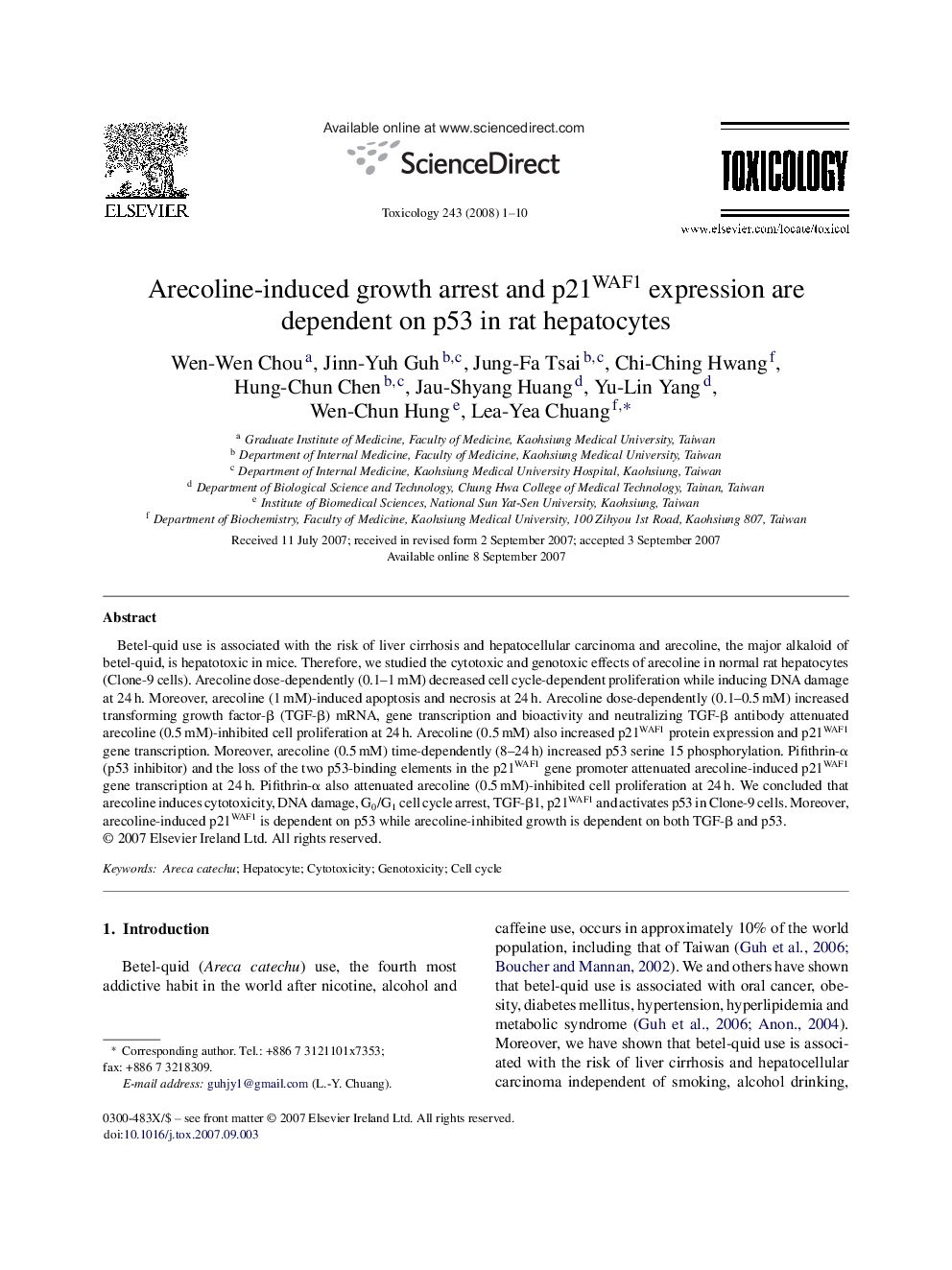| Article ID | Journal | Published Year | Pages | File Type |
|---|---|---|---|---|
| 2597402 | Toxicology | 2008 | 10 Pages |
Betel-quid use is associated with the risk of liver cirrhosis and hepatocellular carcinoma and arecoline, the major alkaloid of betel-quid, is hepatotoxic in mice. Therefore, we studied the cytotoxic and genotoxic effects of arecoline in normal rat hepatocytes (Clone-9 cells). Arecoline dose-dependently (0.1–1 mM) decreased cell cycle-dependent proliferation while inducing DNA damage at 24 h. Moreover, arecoline (1 mM)-induced apoptosis and necrosis at 24 h. Arecoline dose-dependently (0.1–0.5 mM) increased transforming growth factor-β (TGF-β) mRNA, gene transcription and bioactivity and neutralizing TGF-β antibody attenuated arecoline (0.5 mM)-inhibited cell proliferation at 24 h. Arecoline (0.5 mM) also increased p21WAF1 protein expression and p21WAF1 gene transcription. Moreover, arecoline (0.5 mM) time-dependently (8–24 h) increased p53 serine 15 phosphorylation. Pifithrin-α (p53 inhibitor) and the loss of the two p53-binding elements in the p21WAF1 gene promoter attenuated arecoline-induced p21WAF1 gene transcription at 24 h. Pifithrin-α also attenuated arecoline (0.5 mM)-inhibited cell proliferation at 24 h. We concluded that arecoline induces cytotoxicity, DNA damage, G0/G1 cell cycle arrest, TGF-β1, p21WAF1 and activates p53 in Clone-9 cells. Moreover, arecoline-induced p21WAF1 is dependent on p53 while arecoline-inhibited growth is dependent on both TGF-β and p53.
